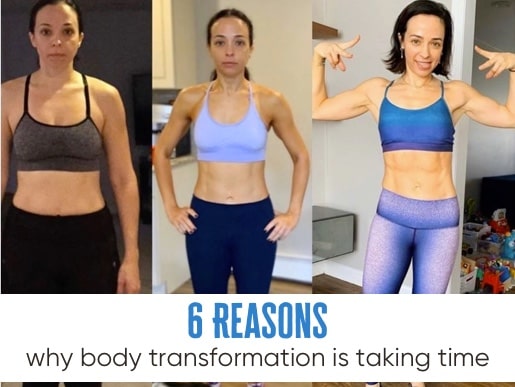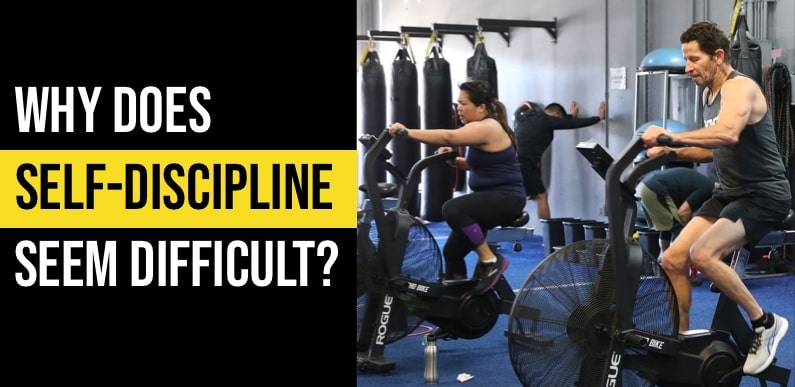What seems to be the problem?
Why is your body taking too long to get ripped?
Is it the diet?
But then, you rarely eat French fries, Donuts, or Dairy Queen Blizzards, and Pizza is only for cheat days. So, let’s rule out this poor diet.
You hit the gym five, sometimes six, days a week with a good dose of cardio and lifting, yet you still do not know the problem. Why am I still not ripped, you wonder?
You are right; diet may not be the answer. And genetics is not necessarily to blame either.
There is a good chance that all your work undermines your efforts to build lean muscle. You frequenting the gym is not the issue; it is what you do once you get there.
If your cardio sessions drag on forever and the dumbbells you use always seem to come from the lighter side of the rack—that could be your problem. We think we may have just discovered the three main training reasons why people are not getting shredded, and it is time to put an end to it once and for all.


Reason #1: Excessive Cardio
One of the excellent training misconceptions is that lifting weights gets you bigger and cardio gets you leaner, period. As a result, the guy (or gal) whose primary goal is to get more “defined” often makes cardio the centerpiece of his program, while lifting takes a backseat.
And by “centerpiece,” we are talking 45-60 minutes on the treadmill followed by 15-20 minutes of pumping iron. You end up with some weight loss, perhaps (provided a clean diet is followed), but a body that is no leaner than before.
Here are some facts:
Weight training can, and will, help you get leaner, and cardio can hurt body composition (percent body fat), as too much of it creates a catabolic (muscle-wasting) environment in the body, which slows metabolism. With adequate protein and carbohydrate consumption, lifting will help build muscle.
More muscle means a faster metabolism, which means more fat is burned, and the physique becomes leaner. And while you may burn more calories during a cardio session than a lifting workout, you will burn more calories at rest (like when you are sleeping or sitting around watching T.V.) due to lifting versus cardio.
Reason #2: Shying away from heavy lifting
The “cardio burns more fat than lifting” theory is one of the excellent training misconceptions around, but we think we have a better one right here: Lifting with high reps and lightweight gets you more shredded than going heavier with lower reps. Oh really? Well, no.
The truth is that high-rep sets increase muscular endurance but are not necessarily fat-burning. You can get more ripped training in the 8-12-rep range, as this is what has been identified as the best rep count for adding muscular size. Where muscle mass increases, so do metabolism.
Recruiting more fast-twitch fibers is significant, as these, compared to slow-twitch fibers, can get significantly more prominent, contributing to speeding up the metabolism, as muscle is metabolically active tissue.
Reason #3: Sweet Trojan
According to the World Health Organization, sugar should make up five percent of a person’s daily calorie consumption, and currently, the national average is about 18 %.
You are probably stricter with your sugar intake than the masses. Go ahead and pat yourself on the back—but your gains (or losses) can still be hindered by eating too many foods with hidden sugar.
For example, salad and chicken are excellent food choices until you drown the riffage in high-calorie salad dressing or bathe your bird in sugary sauce.
Try dipping the tines of your fork into the dressing instead of dumping it onto your salad. With chicken, replace molasses or sugar-laden sauces (like B.B.Q. sauce) with vinegar-based hot sauce.
Reason #4 Post-workout stretches are equally important
Whether or not stretching is beneficial for reducing muscle soreness is a hotly debated subject, but a post-workout stretch can improve flexibility and range of motion (R.O.M.).
Why is that important?
Because being more flexible and increasing your R.O.M. can help your muscles, joints, and connective tissue remain healthy, enhance athletic performance, and reduce the risk of injury so you can level up your workouts and achieve more significant results.
Reason #5 Too much clean food is also not good
Filling up on fruits and veggies is better than feasting on Skittles and Funyons.
But no food is “free.” Portions must be in concert with your body’s calories to yield the desired result, like losing weight or packing on muscle.
That said, whether it is junk food or health food, if consuming it edges you to the point where you are taking in more calories than you are burning, those excess calories will be stored as fat.
Reason #6 How are you managing stress?
High stress can cause an increase in appetite, weight gain, and loss of muscle mass. If changes to your exercise routine do not positively affect your weight, look at your emotional health.
Plan to get a massage or do some relaxation exercises to help calm your body and mind.
For more Accountability-related blogs, click here https://fns360.live/blog/category/accountability-2/.
You can also check out more such videos,
The Huddle with Coach Brian Nunez – Mindset Motivation & Interviews.






